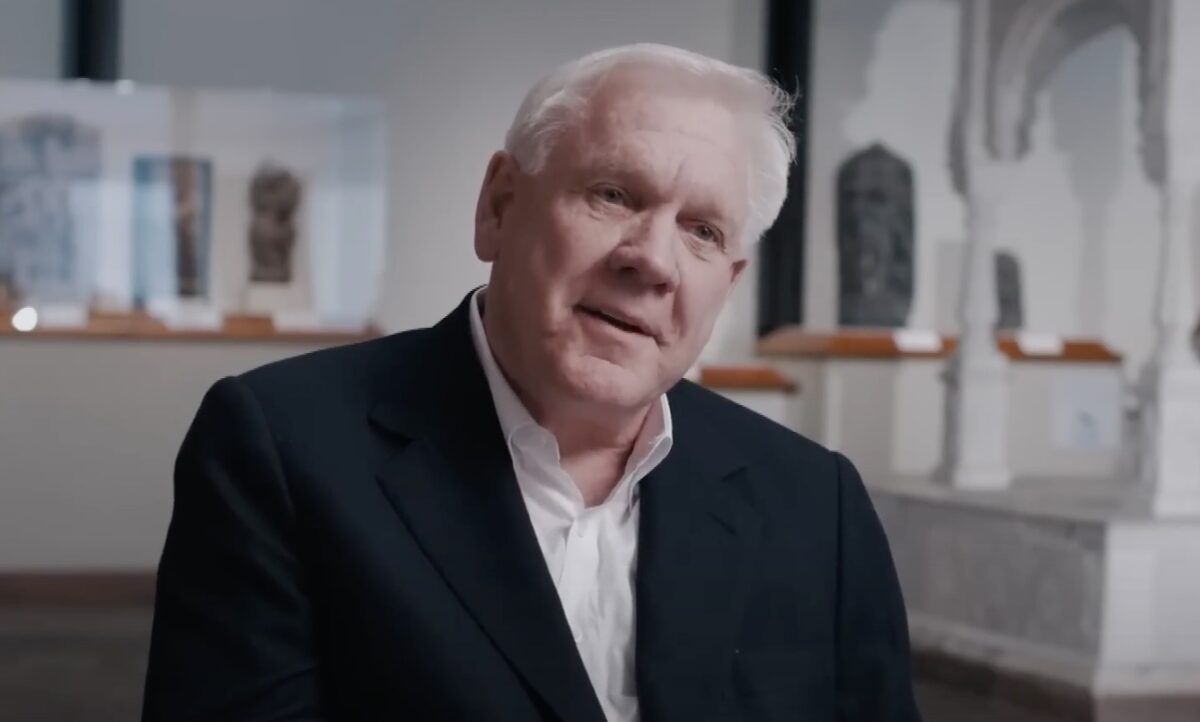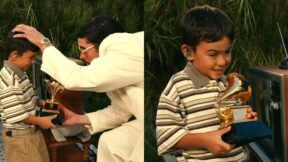Harlan Crow Lashes Out at Coverage on His Relationship With Clarence Thomas: ‘Political Hit Job’ to ‘Destabilize the Supreme Court’

Texas real estate developer Harlan Crow sat for an interview where he hit back at the media coverage surrounding his relationship with Supreme Court Justice Clarence Thomas.
Crow, a prominent Republican donor, has been under the microscope ever since ProPublica published its report about his relationship with Thomas, the luxurious perks he gave him, and the high-rolling vacation trips that Thomas took on Crow’s dime. Thomas never disclosed any aspect of Crow’s largesse, nor did he disclose his real estate dealings with Crow — which has raised numerous discussions about ethical concerns and influence peddling.
Crow initially defended himself in statements to ProPublica, insisting Thomas never asked for the gifts he received, and that these perks were “no different from the hospitality we have extended to our many other dear friends.” Meanwhile, Crow has also met renewed intrigue over his collection of historical artifacts, especially the ones pertaining to the Nazis and 20th-century dictators.
In a conversation with Cheryl Hall for The Dallas Morning News, Crow snapped back on the coverage he has received, calling it “factually incorrect and being written with a strong political agenda.”
Here’s an excerpt from the report:
“I think it’s a political hit job,” Crow said. “I don’t think the media cares really much about Harlan Crow, and I think they’re right. They shouldn’t care much about Harlan Crow.”
“But I think that the media, and this ProPublica group in particular, funded by leftists, has an agenda to destabilize the [Supreme] Court. What they’ve done is not truthful. It lacks integrity. They’ve done a pretty good job in the last week or two of unfairly slamming me and more importantly than that, unfairly slamming Justice Thomas.”
Stephen Engelberg, editor in chief of ProPublica, responded to Crow’s assertions by saying that ProPublica is an independent, nonpartisan nonprofit news organization funded by 36,000 donors. “As investigative journalists, our job is to unearth the facts. If Harlan Crow disputes the accuracy of our reporting involving Justice Clarence Thomas, we invite him to provide us with the details so we can correct any inaccuracies.
It’s worth noting that he and Justice Thomas were given detailed, written questions in advance of our stories. Thomas declined to respond. Crow’s answers were included in full. He questioned none of the facts we reported.”
Crow spoke about his friendship with Thomas, wherein he insisted that the two of them hold different opinions on certain subjects, and that he and his friends never sought to influence Thomas. Asked if he would be friends with Thomas if he weren’t a Supreme Court justice, Crow answered “It’s an interesting, good question. I don’t know how to answer that. Maybe not. Maybe yes. I don’t know.”
When the discussion arrived at Crow’s collection of relics, he pointed out that he collects pieces from a lot of different epochs and historical characters. He referred back to his previous rationale that “you have to present the good and the bad to present reality” with his collection.
“We have a lot on slavery. Slavery was a great evil in American history. There’s a lot more about Frederick Douglass here than there is about the bad guys of slavery. You can’t have a library and talk about that without including the bad.”
He points to his collection on the Japanese internment during World War II.
“That was one of our moments that we’re not very proud of, but we have stuff about that here. We’ve got Jesse James and Al Capone and Lee Harvey Oswald and John Wilkes Booth. Those are bad guys. They did bad things to America.”
“So yeah, World War II was a fairly big event in American history. We have a bunch of stuff about World War II, including some of our enemies… For somebody to say that I like those guys would be a weird conclusion, but that’s been in the press recently.”
“It really, really bothers me that — what I’m going to call yellow journalism — has decided to say that I like some of that stuff. That’s exactly the opposite of what the truth is.”
For example, there is no love lost for Germans in World War II.
“My mom was on a ship that was sunk by Germans during World War II. If you try to kill my mom, I don’t like you. I mean, that’s reasonably obvious. And so the idea that I could have sympathy for Nazism is insane.”
Crow added:
“When [Mikhail] Gorbachev was the leader of Russia, and the world changed overnight, I decided that it might be possible to get a statue of [Vladimir] Lenin to commemorate that era … and our Cold War with communism.”
In 1990, Crow figured a lot of communist statues would be coming down. He hired a young local man who found a statue of Lenin in the former Soviet Georgia after it became an independent country.
“We bought it, brought it to Dallas, and it’s out in the yard right now,” he said, cocking his head toward the backyard. “I don’t think it [cost] a great deal of money. The people in those newly independent countries were very anxious to get Western currency, and so it was probably cheap, but I don’t remember.”
Once he had Lenin implanted, Crow decided to make a rogue garden of bad guys, sending his buyer around Eastern Europe for statues of other communist leaders.
“Ultimately, I ended up buying — I don’t know the exact number, but call it 15 or some number like that – other statues of other people, most of whom people have never heard of.”
New: The Mediaite One-Sheet "Newsletter of Newsletters"
Your daily summary and analysis of what the many, many media newsletters are saying and reporting. Subscribe now!






Comments
↓ Scroll down for comments ↓